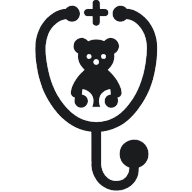5 Early Childhood Milestones that Positively Impact Learning
Discover the pivotal early childhood milestones that set the foundation for lifelong learning, as revealed by leading experts in child development. This article delves into practical strategies for nurturing key skills, from a baby's first words to the nuances of cooperative play. Unveil the expert-backed approaches to fostering essential language and social milestones that can positively influence a child's educational journey.
- Celebrate Baby's First Word
- Encourage Cooperative Play
- Nurture Strong Eye Contact
- Foster Basic Language Skills
- Support Language Acquisition Milestones
Celebrate Baby's First Word
One of my favorite milestones as both a parent and a pediatrician is the baby's first word. First, it's so long awaited after months of talking to your baby! Second, your baby's choice of word gives you such interesting insight - maybe 'dog' is his favorite person or saying 'uh-oh!' shows his humorous side. In addition to being fun, your baby's foray into speaking has a wonderful impact on their language development - and it reflects a lot of ongoing development that has been in the works since day one. Babies understand language well before they speak, and even early smiles and eye contact represent important communication milestones. Talking to your baby from birth and throughout each day is one of the most important things you can do to support language development and communication skills! If your baby hasn't begun speaking yet, or has a speech delay, this is one of the most helpful things you can do. Make sure to speak with your pediatrician about any concerns you have, because there is such a range of normal time line for speech - and there are also many wonderful resources, should your baby need them!

Encourage Cooperative Play
One truly impactful early childhood milestone I've observed is when a child transitions from solitary play to engaging in cooperative play with peers. I recall a little one who began sharing toys and ideas, effectively solving small conflicts during group activities—an experience that boosted both their confidence and social skills. This shift was not only a sign of healthy emotional development but also laid the foundation for critical thinking and problem-solving abilities, which are vital in any field, including healthcare.
In radiotherapy, for example, effective teamwork and clear communication are key, and these early interactions can set the stage for success later in life. My advice to parents is to foster environments that encourage group play and open communication, whether through playdates, group activities, or even family games. These opportunities help children learn the art of collaboration and empathy, traits that will serve them well academically and personally as they grow.

Nurture Strong Eye Contact
Not bragging, but my daughter has always had incredible eye contact. I know newborn vision isn't the sharpest at birth, but I remember the intensity in her eyes as she took in the world. At just one month old, she seemed to be looking straight into mine. By two months, her face would light up when she saw me, and by three months, she was engaging with strangers—her sparkling gaze and soft smile drawing comments about how rare such strong eye contact was at that age.
This early milestone had a profound impact on her development. Strong eye contact helped her quickly pick up on social cues, making her interactions more engaging and responsive. It also built a foundation for early communication, deepening our bond and further developing her emotional intelligence.
For parents looking for similar milestones, the best advice is to engage consistently. Talk to your baby, hold their gaze, and respond to their expressions. Every child develops at their own pace, but creating a loving, interactive environment encourages connection. Eye contact is one of the first ways a baby communicates. Nurturing it helps build confidence, social awareness, and a deep sense of security.

Foster Basic Language Skills
One impactful early childhood developmental milestone I observed was when a child around 2 years old began to develop basic language skills, starting to string together simple two-to-three word sentences. This milestone positively affected their learning and development because it marked the beginning of more effective communication, which in turn boosted their confidence and social interactions. As they gained the ability to express themselves more clearly, they were able to engage in more meaningful conversations with peers and adults, which fostered their emotional intelligence and social skills.
For parents looking to foster similar milestones, I would recommend encouraging regular verbal interactions and reading to your child daily. Even if they're too young to fully understand the words, hearing them consistently helps with language acquisition. Asking open-ended questions and giving your child the time and space to respond encourages them to practice their new language skills. Creating a rich language environment, where communication is valued and nurtured, is crucial to supporting early developmental milestones like this.

Support Language Acquisition Milestones
Good day,
What is one impactful early childhood developmental milestone you've observed in a child, and how did it positively affect their learning or development?
I am Dr. Gregory Gasic, a Neuroscientist, scientific consultant, and Co-founder of VMeDx. One impactful early childhood developmental milestone I've observed is the emergence of language acquisition, particularly when a child begins combining words into simple phrases around 18 to 24 months. This milestone represents a significant leap in cognitive, social, and emotional development, as it allows the child to communicate needs, express thoughts, and engage more meaningfully with their environment. For example, I observed a child struggling with frustration due to limited verbal communication. This newfound communication reduced frustration, increased confidence, and fostered deeper social connections, laying the foundation for more complex language skills and problem-solving abilities. From a neuroscientific perspective, this milestone reflects the brain's rapid development of neural pathways in areas like Broca's and Wernicke's regions, which are critical for speech and comprehension. Supporting this milestone with rich language exposure, such as reading, conversation, and interactive play, can positively affect a child's learning.
What advice can you offer to parents who are looking for similar milestones?
For parents looking to support and observe key developmental milestones like language acquisition, I suggest creating a rich, engaging environment fostering communication and interaction. Talk to your child frequently, even if they aren't responding verbally. Narrate daily activities, describe objects, and ask simple questions to stimulate their understanding and encourage verbal responses. Reading books together is incredibly impactful, as it introduces new vocabulary and helps children connect words to meaning. Engage in interactive play with toys, songs, or games that encourage imitation and naming of objects, such as puzzles or building blocks. Respond enthusiastically to any attempts at communication, whether through words, gestures, or expressions, to reinforce their efforts and build confidence. Be patient and observe every child develop independently. Early intervention can make a significant difference. Parents can help their children reach these milestones and set the stage for lifelong learning and development by providing a nurturing and stimulating environment.


